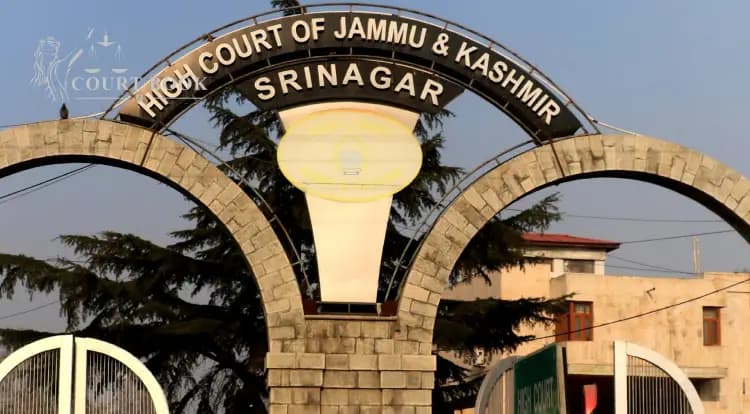In a recent and significant ruling, the Jammu and Kashmir High Court clarified that contractors are liable to pay GST based on the rate applicable on the last date for tender submission, and not on the date the work is allotted or executed. This decision was made while hearing a review petition filed by Vishal Verma, the proprietor of M/s Kiran Constructions, who had earlier challenged a tax recovery notice issued by the authorities.
Read also: Justice Arun Palli Sworn In As Chief Justice Of Jammu & Kashmir And Ladakh High Court
Background of the Case
The petitioner, Vishal Verma, had filed the review petition challenging the High Court’s earlier judgment passed on 3rd November 2023 in a writ petition he had filed in 2021. He argued that the contract he executed should be governed by the revised GST rate of 12%, as recommended by the GST Council prior to the tender submission.
However, the GST reduction from 18% to 12% was formally notified only on 21st September 2017, while the last date for submitting tenders was 1st August 2017 — when the applicable GST rate was still 18%, as per SRO-GST-11 dated 8th July 2017.
“The rates quoted by the contractor in his tender shall be inclusive of all taxes directly related to the contract value, with existing percentage rates prevailing on the last due date for receipt of tenders.” — High Court Judgment
A bench of Justices Sanjeev Kumar and Puneet Gupta upheld the earlier decision, dismissing the review petition. The court emphasized that Special Condition 49 of the contract agreement clearly stated the applicable tax rate would be the one prevailing on the last due date of bid submission.
Read also: Jammu & Kashmir High Court Clarifies MCI Guidelines on Non-Medical Faculty Appointments
Clause 49 of the special conditions in the contract agreement played a pivotal role. According to this clause:
“The tendered rates shall be deemed to be inclusive of all taxes directly related to contract value with existing percentage rates prevailing on the last due date for receipt of tenders.”
The clause further provided that any increase or decrease in tax rates after that date would be adjusted accordingly, either reimbursed or recovered.
The court concluded that the review petitioner was fully bound by this contract clause, and since no legal challenge was raised against this clause, it remains enforceable.
The petitioner cited Section 13 of the CGST Act, 2017, which says the liability to pay tax on services arises at the time of supply. He contended that since the work started after 21st September 2017, the GST rate of 12% should apply.
However, the court firmly rejected this argument, noting:
“Recommendations of the GST Council cannot be equated to a formal notification. Under Article 265 of the Constitution of India, no tax shall be levied or collected except by the authority of law.”
The petitioner also relied on SRO-GST-2 (Rate) dated 22nd August 2017, which prescribes 12% GST for composite supply of works contract services provided to the government. But the court clarified that this applied only to specific categories such as:
- Construction of historical monuments
- Irrigation projects like canals or pipelines
- Water supply and sewerage projects
Since the petitioner’s contract did not fall within these categories, the reduced 12% GST rate was not applicable.
The court highlighted that similar matters had already been decided in Pardeep Electricals and Builders Pvt. Ltd. v. Union of India and connected cases. In those decisions, it was established that while tax liability was not disputed, the recovery notices were struck down only due to lack of opportunity for hearing, not on the basis of incorrect tax rates.
“The liability to pay tax was not in dispute. It was only the quantum of tax which required proper calculation.”
Despite these findings, contractors including the current petitioner continued to challenge the tax recovery notices, re-arguing the same points.
The court concluded there was no new fact, no error apparent, and no valid reason to re-open the already settled matter.
“There is no discovery of any new fact, nor any sufficient reason to persuade us to recall our judgment.”
The petition was dismissed, and the earlier judgment was upheld.
APPEARANCE:
Ajay Kumar Vali, Advocate with Raghav Gaind, Advocate For Petitioner
Vishal Sharma, DSGI For Respondents
Case-Title: Vishal Verma vs Union of India , 2025













